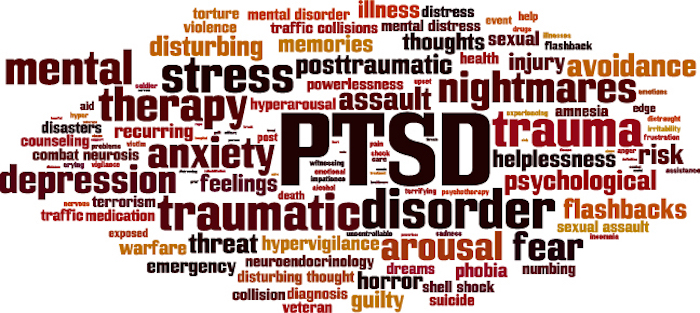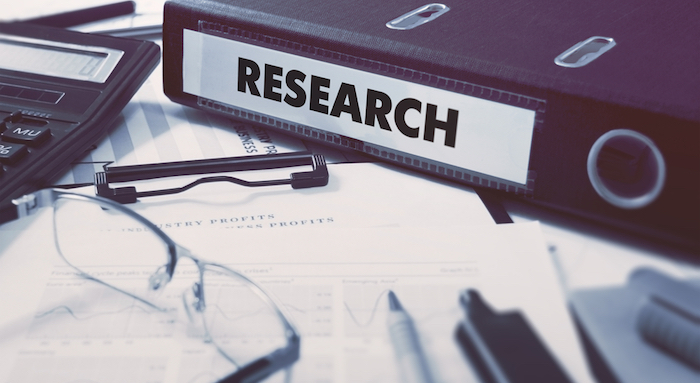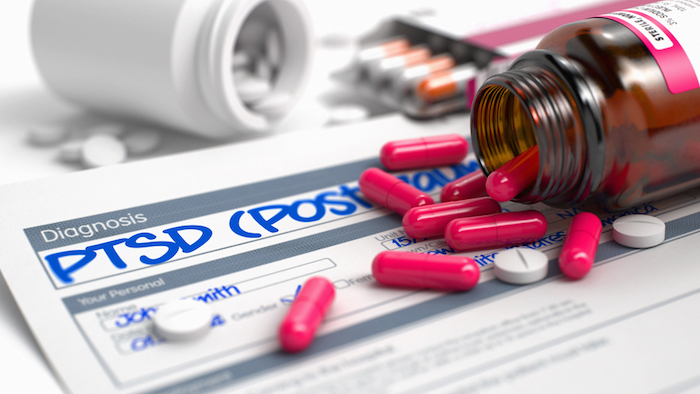“Cannabis is a [traumatic] memory eraser,” says Michael Krawitz, the head of Veterans for Medical Cannabis Access. Krawitz believes cannabis is an indispensable PTSD treatment. Krawitz adds that the drugs patients are usually prescribed — such as antidepressants, powerful antipsychotic agents, and benzodiazepines — often leave patients “feeling like zombies.” Krawitz’ opinion is shared not only by rapidly growing number of veterans but also among staggering numbers of other individuals living with PTSD. For Krawitz and tens of thousands of other people living with PTSD, cannabis is an essential PTSD treatment.
The sentiments echoed by Krawitz and others is based on their personal experiences, not studies, therefore their perspectives are anecdotal. But what does science say about cannabis as a PTSD treatment? In this article, we’ll explain PTSD and address the issues and challenges patients face with cannabis as a PTSD treatment.
PTSD Defined: What is PTSD?
Post-traumatic stress disorder, more commonly called PTSD, is a potentially severely debilitating psychiatric disorder where patients can experience any or all of the following: intrusive thoughts, memories, disturbing dreams, and flashbacks; avoidance of people, places, and things that remind them of the traumatic event(s); re-living the traumatic experience; hyperarousal to triggering stimuli that reminds them of the event; negative thoughts, feelings, and distorted beliefs and perceptions of oneself; persistent anger, fear, guilt or shame.
PTSD is caused by exposure to severely traumatic events, such as war and combat, natural disasters, acts of violence, rape, abuse, or terrorism. The condition can affect nearly every aspect of a patient’s life, from their relationships and quality of life to their physical and emotional health.
With the continued normalization of medical cannabis, widespread legalization across the U.S., and increased access for patients, the number of patients using cannabis as a PTSD treatment is growing rapidly.
How Bad Is the PTSD Epidemic?
The National Comorbidity Survey Replication (NCS-R) estimates 3.6% of adults in the U.S. lived with PTSD over the past year. That translates to more than 12 million people.

The severity of symptoms — measured as “serious impairment,” “moderate impairment,” and “mild impairment” — was just about equal across the patient population. 36.6% of patients lived with serious impairment, while 33.1% experienced moderate impairment and 30.2% had mild impairment.
Is Cannabis an Effective PTSD Treatment?
Despite the fact more than two dozen states now allow PTSD patients to become medical cannabis patients and numerous patient testimonials, anecdotal experiences, case reports, lab studies, and observational studies, no large randomized controlled trials (RCTs) have yet to be published. The reason we don’t have large-scale RCTs is the status of cannabis as a DEA Schedule I drug — meaning the federal government sees cannabis being as dangerous and addictive as heroin. This makes it difficult to conduct medical studies, however, there is hope that this will change soon.
Until we have the types of large-scale randomized trials necessary for the mainstream medical community to fully embrace cannabis, we’re limited to preclinical studies that preclude medical professionals from claiming cannabis is an effective PTSD treatment.
However, the lack of endorsement from the mainstream medical community hasn’t stopped the tens of thousands of people who rely on it to improve their quality of life from swearing by cannabis as their preferred PTSD treatment. And if someone finds a treatment that works for them, they probably don’t care whether RCTs exist. It works for them, and in their perception, that’s what’s most important.
Are There Other Effective PTSD Treatments?

There’s no doubt PTSD can be difficult to treat, but with the appropriate treatment, the condition and its symptoms can be managed or eliminated. Unfortunately, many PTSD patients are only treated with pills. At best, these pharmaceuticals offer short-term benefits. At their worst, many patients experience severe side-effects or develop an addiction.

Research suggests that PTSD treatment is more effective when combined with psychotherapy and cognitive behavioral training (CBT). In fact, most studies conclude that CBT is the most consistently effective short and long-term PTSD treatment.
According to the Anxiety and Depression Association of America, the following are examples of some of the most effective CBT treatments :
- Cognitive Processing Therapy (CPT): A form of CBT that utilizes cognitive therapy to evaluate and change trauma-related thoughts;
- Prolonged Exposure (PE): Another form of CBT that relies more heavily on behavioral therapy techniques to help individuals gradually approach trauma-related memories, situations, and emotions;
- Eye Movement Desensitization and Reprocessing (EMDR): A form of psychotherapy that involves processing upsetting trauma-related memories, thoughts and feelings;
- Stress Inoculation Training (SIT): Another type of CBT that aims to reduce anxiety by teaching coping skills to deal with stress that may accompany PTSD.
Final Thoughts: Cannabis as a PTSD Treatment
Beyond pharmaceutical or cannabis-based treatments, the most effective course of treatment often includes lifestyle changes such as adopting a healthy lifestyle, exercising consistently, and socializing with friends and family in addition to psychotherapy.
As for the current state for cannabis research, the good news is that after years of seeking approval, we finally have one “gold standard” randomized-controlled study underway that could produce conclusions that would make the mainstream medical community more willing to fully embrace cannabis as a viable PTSD treatment. In the meantime, it’s fortunate that many states with medical cannabis programs consider PTSD to be a qualifying condition.
If you’re interested in pursuing cannabis as a PTSD treatment option, schedule an appointment to learn about becoming a Maryland Medical Cannabis patient.
